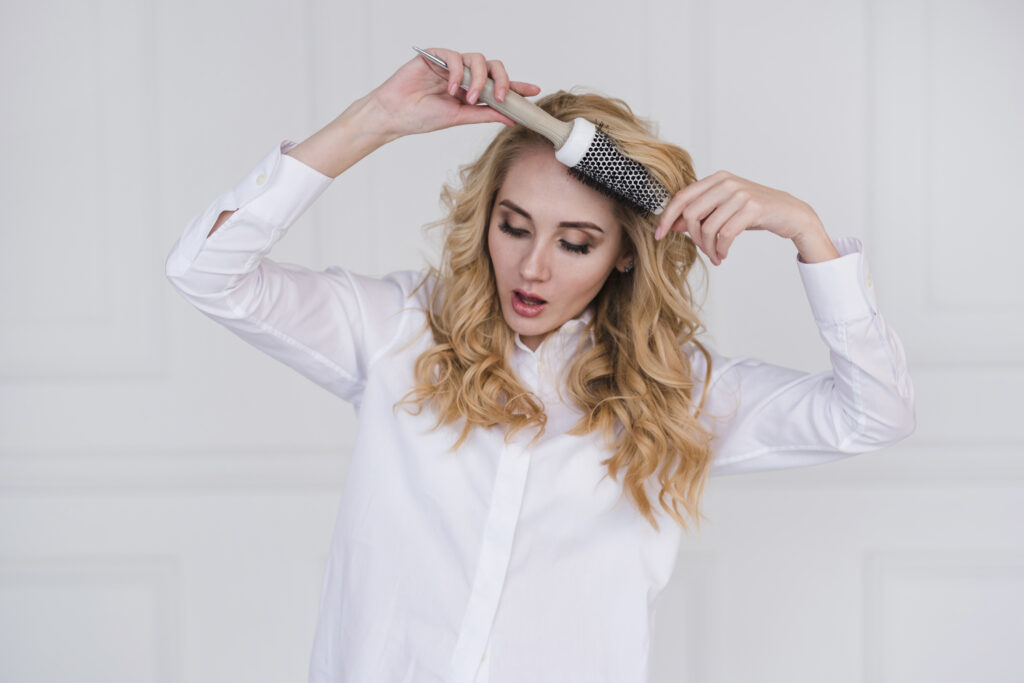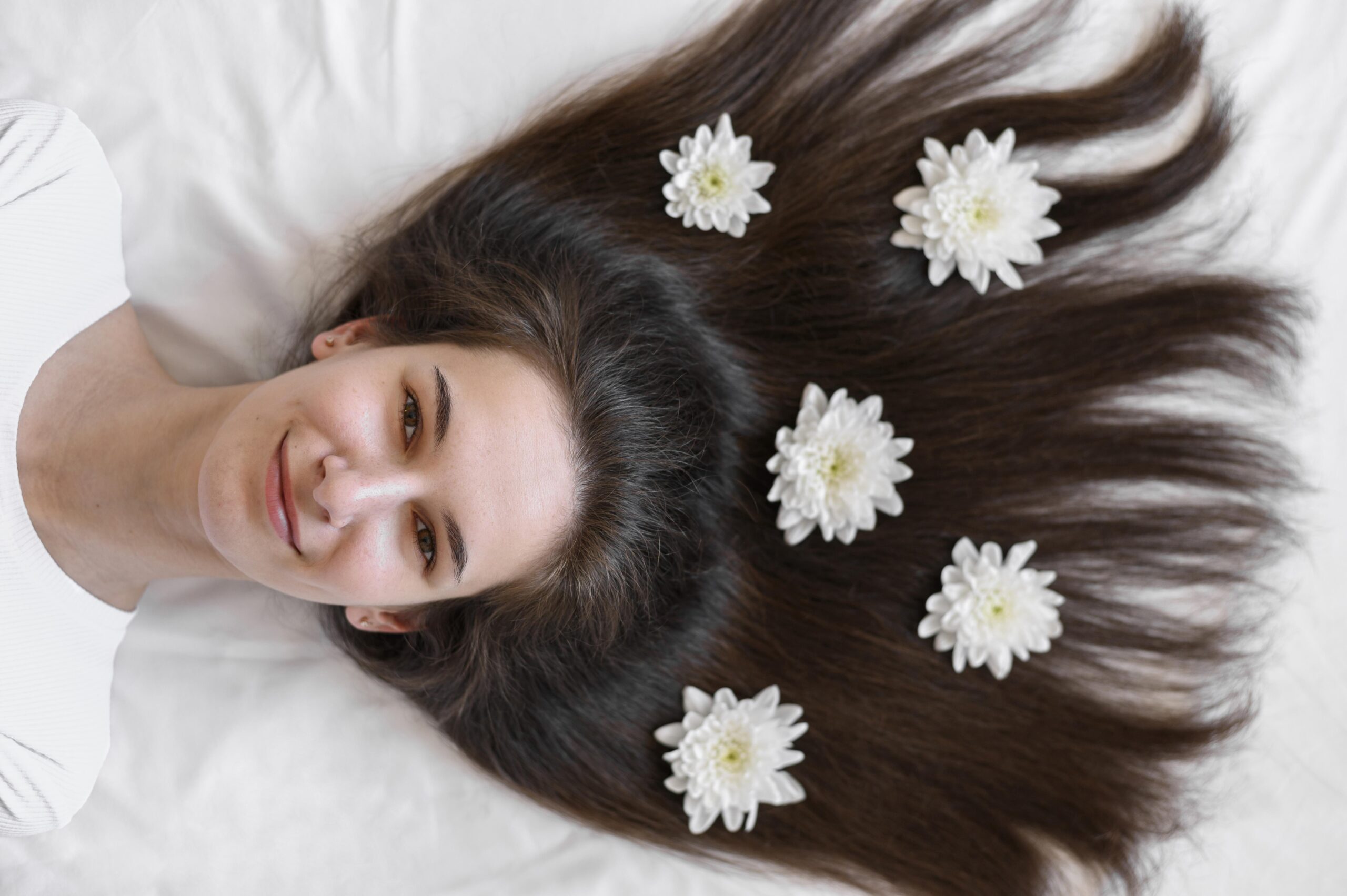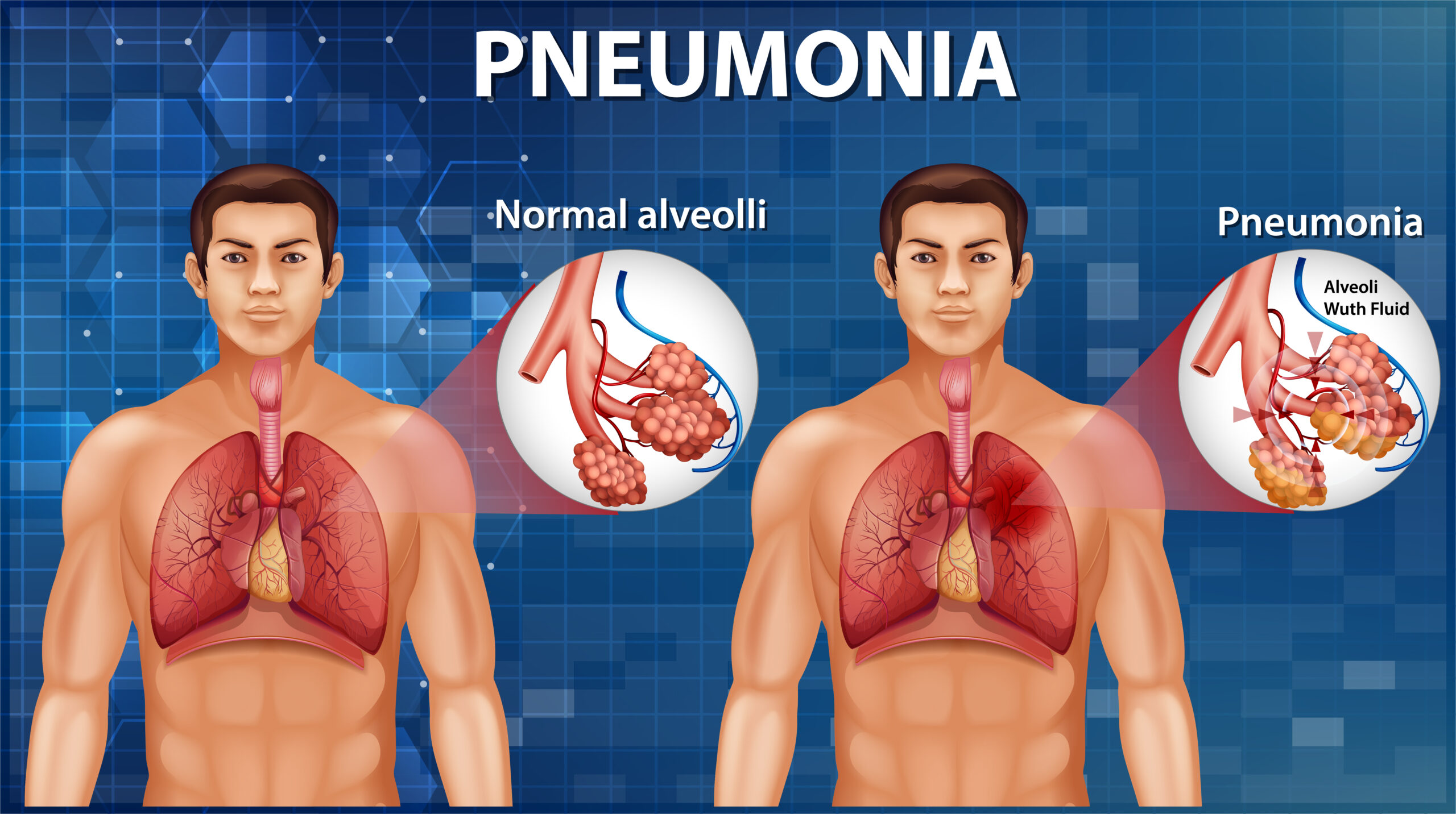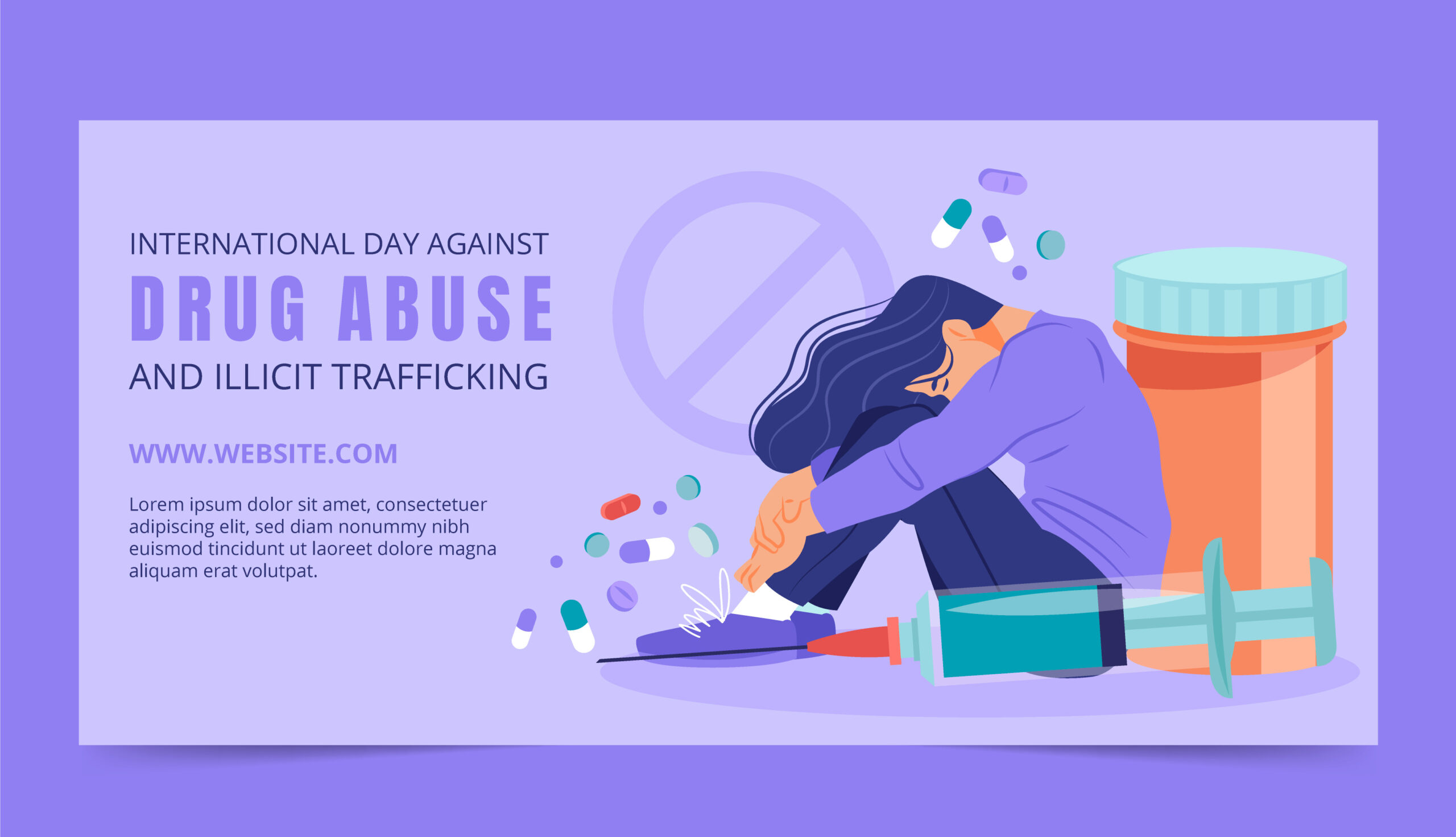Numerous factors, such as genetics, food, lifestyle, and general health, affect hair growth. Although genetics cannot be altered, there are a number of natural strategies to encourage quicker and better hair development. In this post, we’ll look at practical ways to stimulate hair development naturally and offer advice on how to keep healthy, colorful hair.
Table of Contents
Optimize Your Diet for Hair Health:

For healthy hair development, a balanced diet is essential. For it to develop and maintain its strength, your hair requires certain nutrients:
*Proteins: One type of protein called keratin is the main component of hair. Consuming enough high-protein meals can assist supply the building blocks needed for the development of new hair. Examples of these foods are fish, poultry, eggs, almonds, and beans.
*Vitamins and Minerals: Iron, zinc, and the vitamins A, C, D, and E are all required to keep hair healthy. Good sources include citrus fruits, sweet potatoes, avocados, berries, and leafy greens.
*Vitamin B7, often known as biotin, is a chemical that helps with hair development and structure. Eat a diet high in foods high in biotin, such as sweet potatoes.
Keep Your Scalp Healthy:

The basis for good hair is a healthy scalp. Here’s how to keep it that way:
*Frequent Scalp Massages: Increasing blood flow to the scalp can activate hair follicles and encourage growth. Apply a gentle 5 to 10 minute daily massage to your scalp using your fingers or a scalp massager.
*Employ Natural Oils: Hair is strengthened and the scalp is nourished with oils such as coconut, castor, and rosemary oil. Castor oil has been connected to increased hair growth, while coconut oil absorbs deeply and supplies hydration. Thick hair may be encouraged and circulation can be enhanced with rosemary oil.
*Avert Dangerous Chemicals: Limit your use of harsh shampoos and styling chemicals that might remove natural oils from your scalp. To keep your scalp healthy, choose natural products that are devoid of sulfates.
Stay Hydrated:
Hydration is essential for overall health and impacts your hair as well. Drinking adequate water keeps hair hydrated from the inside out, preventing dryness, brittleness, and breakage. Aim for at least 8 glasses of water a day to ensure your scalp and hair are well-hydrated.
Manage Stress Levels:

By forcing hair follicles into a “resting” phase, ongoing stress can cause hair thinning and loss. In order to properly handle stress:
*Exercise mindfulness: Methods such as yoga, meditation, and deep breathing can assist in lowering stress.
*Regular exercise increases circulation and releases endorphins, both of which are beneficial for hair growth.
*Get 7 to 9 hours of good sleep every night to help your body heal and rejuvenate, which includes your hair follicles.
Trim Regularly to Prevent Split Ends:
Regular trims prevent split ends from moving up the hair shaft, which can cause breakage and make hair appear thinner. Aim to trim your hair every 6-8 weeks to keep it looking healthy and promote growth.
Limit Heat Styling and Chemical Treatments:
Hair might become weaker and grow more slowly if styling appliances like flat irons, curling wands, and blow dryers use too much heat. The hair shaft can also be harmed by chemical procedures like dyeing, perming, or straightening. Whenever it’s feasible:
*Air Dry Your Hair: To reduce heat damage, let your hair air dry naturally.
*Use Heat Protectants: To minimize damage, use a heat protectant spray or serum if you must use heated styling equipment.
*Choosing Natural Hairstyles: Accept the natural texture of your hair to lessen the need for harmful treatments.
Use Natural Hair Masks:

Natural hair masks may provide shine and development by nourishing the hair and scalp:
*Apply an egg and yogurt mask to your hair by combining the two. Yogurt provides shine and hydration, while eggs are high in protein.
*Aloe Vera Gel: Aloe vera conditions hair, promotes growth, and calms the scalp and dandruff. After applying fresh aloe vera gel to your scalp and letting it sit for half an hour, remove it with a gentle shampoo.
. Protect Your Hair from Environmental Damage:
Hair can get weaker due to exposure to the sun, pollutants, and severe weather. Keep your hair safe by:
*Wearing Hats or Scarves: Wear a head covering when spending a lot of time in the sun.
*Hair Rinsing After Swimming: After swimming, give your hair a good rinse because chlorine and seawater may be hard on it.
Conclusion:
Although genetics can play a part in hair development, strong, healthy hair may be supported in a variety of natural ways. Tiny adjustments may have a major impact on the health of your hair, from stress management and applying natural hair treatments to diet optimization and hydration. Maintaining consistency is essential, and with time, these all-natural methods will assist you in getting the gorgeous locks you want.
FAQS:
How long does it take to see results from natural hair growth methods?
Can diet alone improve hair growth?
Are natural oils like coconut and castor oil effective for hair growth?
Should I avoid all heat styling for healthy hair growth?
How often should I use a natural hair mask?
THANKS FOR COMING:
READ OUR MORE ARTICLES:
DIFFERENT BLOGS:







Great article! This blog offers practical and natural tips for achieving strong, healthy hair. It’s a helpful reminder that even small lifestyle changes, like improving your diet and managing stress, can make a big difference in hair health. Consistency is key, and these insights are sure to help anyone looking to enhance their hair naturally. Highly recommended